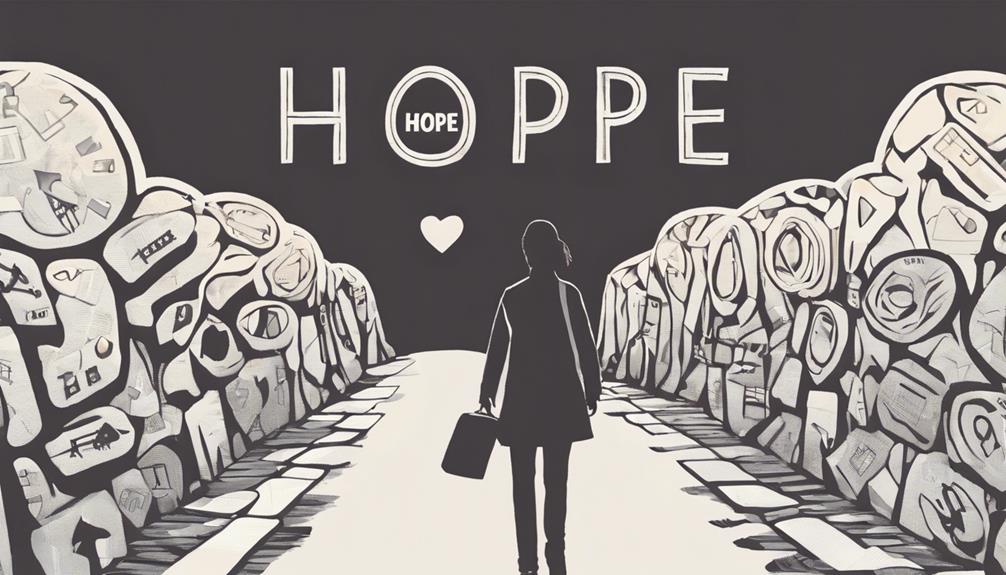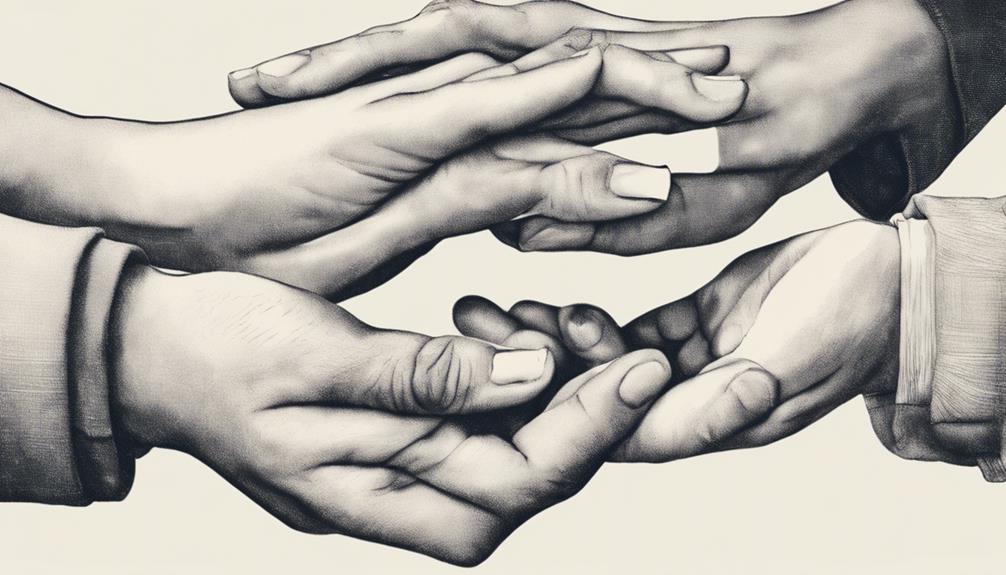Finding Love After Los
Imagine yourself as a gardener tending to a wilted plant that has endured a harsh storm. Just as you nurture the plant back to life with patience and care, finding love after loss requires a similar level of tenderness and resilience.
The journey of rediscovering love can be both daunting and rewarding, filled with twists and turns that challenge your emotional core. But amidst the trials and tribulations, there lies a glimmer of hope and possibility.
Embracing the Healing Journey

Embarking on the journey of healing after a loss can be a profound and transformative experience. Through self-discovery and growth through pain, you have the opportunity to explore the depths of your being in ways you never imagined.
It's in these moments of struggle and sorrow that you often find aspects of yourself that were previously hidden. As you navigate through the waves of grief, you may uncover strengths you never knew you had.
The process of healing isn't linear, but each step you take towards self-discovery brings you closer to a place of inner peace and understanding. Embrace this journey wholeheartedly, for it's through these challenges that you'll emerge stronger and more resilient.
Redefining Self-Love and Worth

Redefining self-love and worth involves recognizing your intrinsic value and nurturing a positive relationship with yourself. It's about embarking on a journey of self-discovery, where you delve deep into your thoughts, emotions, and aspirations.
Through this process, you uncover layers of your identity, understanding what truly makes you unique and valuable. Self-acceptance plays a crucial role in this transformation, allowing you to embrace your flaws and strengths with compassion. It's about celebrating your individuality and learning to love yourself unconditionally.
Navigating Emotional Baggage

To navigate emotional baggage effectively, acknowledge the weight it carries and actively work towards unpacking and processing it. It's crucial to let go of past hurts and traumas to create space for new beginnings and healthier relationships. Moving forward requires a willingness to confront your emotions head-on, allowing yourself to heal and grow.
Here are five key steps to help you navigate your emotional baggage:
- Reflect on past experiences: Take time to understand how past relationships and experiences have shaped your emotional baggage.
- Seek support: Don't be afraid to lean on friends, family, or a therapist for guidance and support.
- Practice self-care: Prioritize activities that promote self-love and emotional well-being.
- Set boundaries: Establish healthy boundaries to protect yourself from repeating past patterns.
- Focus on personal growth: Use your emotional baggage as a tool for self-discovery and growth.
Building Trust in New Relationships

Building trust in new relationships starts with open communication and vulnerability. Setting communication boundaries is crucial to establish a safe space for both partners. By openly discussing your needs, fears, and expectations, you can create a foundation built on honesty and understanding.
It's also essential to acknowledge past experiences that may impact your ability to trust. Sharing your vulnerabilities and being receptive to your partner's feelings can help bridge any gaps caused by past hurts. Remember that trust is built over time through consistent actions and words that align with honesty and respect.
Embracing Vulnerability and Connection

To form a deep connection in a new relationship, embracing vulnerability is key. Cultivating openness and fostering intimacy are crucial steps in building a strong bond with your partner. Here are five ways to embrace vulnerability and deepen your connection:
- Practice Active Listening: Truly listen to your partner without judgment or distraction.
- Share Your Feelings: Express your emotions openly and honestly.
- Be Authentic: Show your true self without fear of rejection.
- Support Each Other: Offer comfort and encouragement in times of need.
- Celebrate Successes and Failures: Share both joys and challenges to strengthen your connection.
Conclusion
Finding love after loss may seem daunting, but it's possible. By embracing the healing journey, redefining self-love and worth, navigating emotional baggage, building trust in new relationships, and embracing vulnerability and connection, you can open yourself up to the possibility of finding love again.
Remember to be patient with yourself and allow time for healing. Love can come when you least expect it, so keep an open heart and mind as you navigate this new chapter in your life.